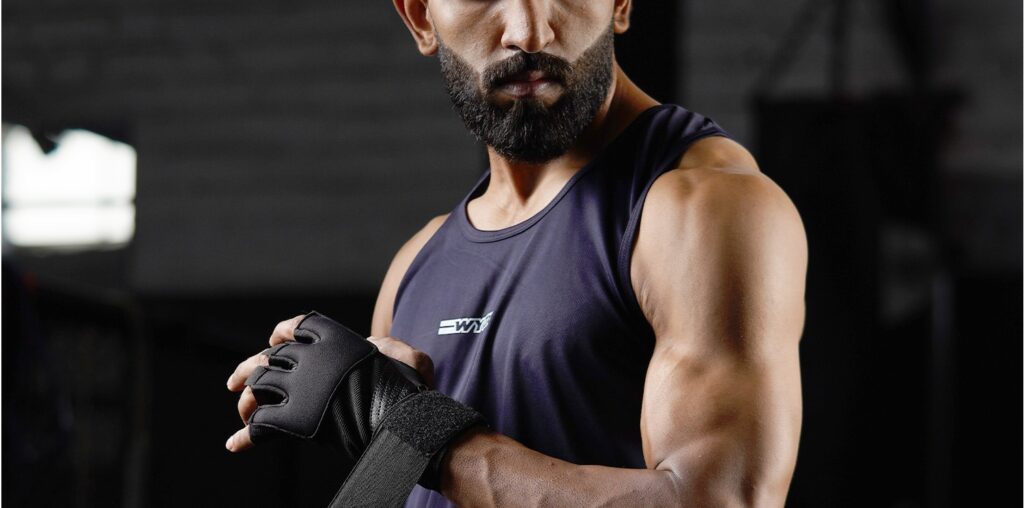Training for MMA (Mixed Martial Arts) is a demanding and complex journey that requires dedication, consistency, and a well-rounded approach. Whether you’re aiming to compete professionally or just want to improve your fitness and self-defense skills, MMA training involves multiple disciplines, including striking, grappling, strength conditioning, and mental toughness. This blog will explore the essential aspects of training for MMA and provide practical insights to help you excel.
Building a Strong Foundation: The Basics of MMA Training
When it comes to training for MMA, having a solid foundation is key to becoming a successful fighter. It’s not just about learning one specific martial art or technique; rather, MMA is about blending different styles. This means focusing on various aspects, such as boxing, Brazilian Jiu-Jitsu (BJJ), wrestling, and Muay Thai.
Boxing and Muay Thai focus on striking techniques, while BJJ and wrestling emphasize grappling and submissions. As you progress in your MMA training, you’ll need to become proficient in each of these disciplines to execute them effectively during fights. Incorporating training in all these areas will give you the flexibility to perform well in a wide range of scenarios.
Also read this:
Best Luxury Resort in Shivpuri Rishikesh- HOA Resort
Strength and Conditioning: The Backbone of MMA Success
Training for MMA is not just about techniques and skills; strength and conditioning play a huge role in a fighter’s overall performance. To endure the intense physical demands of MMA, athletes must develop explosive power, endurance, and agility.
Weightlifting and resistance training are crucial components of MMA strength training. Compound movements, such as squats, deadlifts, and bench presses, help build core strength, while Olympic lifts can enhance explosiveness. In addition, functional exercises, like kettlebell swings and medicine ball throws, improve the athleticism needed for MMA.
To improve cardiovascular endurance, MMA athletes incorporate high-intensity interval training (HIIT), which mimics the bursts of effort during a fight. These intervals involve short bursts of intense exercise followed by brief rest periods, increasing your stamina and recovery rate.
Additionally, don’t forget to prioritize mobility exercises to maintain flexibility and avoid injury. Mobility work ensures that your joints remain strong and flexible enough to handle the strain of the sport.
Sparring and Live Drills: Real-Time Practice
While drills and technique work are essential for improving form and skills, nothing compares to sparring and live drills when it comes to training for MMA. Sparring with partners provides real-time experience, helping you adapt your techniques in dynamic situations.
Sparring allows you to practice striking, grappling, and transitioning between the two, just as you would in an actual fight. However, sparring is also a mental challenge, requiring focus, strategy, and quick decision-making under pressure.
For MMA athletes, the ability to stay calm and composed during sparring sessions is vital. You must learn to read your opponent’s movements, control the pace of the fight, and apply pressure when necessary. Controlled sparring sessions, combined with feedback from your coaches, will help you refine your skills, gain confidence, and prepare for competitive bouts.
Also read this:
«Узнайте, как играть в покердом online на лучших сайтах России»
Recovery and Nutrition: The Unsung Heroes of MMA Training
No matter how intense your training regimen is, recovery and nutrition are just as important to avoid burnout and maintain peak performance.
Proper nutrition ensures your body has the fuel it needs to recover after rigorous workouts. A balanced diet, including lean proteins, healthy fats, and complex carbohydrates, is essential for muscle repair, energy levels, and overall well-being. Many MMA athletes follow meal plans that optimize performance and recovery, consuming nutrient-dense meals that align with their training demands.
Equally important is recovery. Intense training sessions can strain muscles and joints, so it’s crucial to rest and allow time for healing. Incorporating rest days into your training schedule, along with techniques such as foam rolling, stretching, and ice baths, can significantly speed up recovery. Adequate sleep is also a key factor in muscle growth and cognitive function.
Mental Toughness: The Key to MMA Success
In the world of MMA, mental strength can make or break a fighter. The ability to stay calm, focused, and resilient under pressure is what separates champions from the rest of the pack. Developing mental toughness requires consistent practice and dedication.
Visualization and meditation are powerful tools for building mental strength. By mentally rehearsing fight scenarios, you can improve your focus and decision-making skills during an actual match. Breathing exercises are another effective way to control your emotions and maintain clarity, especially during high-pressure situations.
Remember, the physical aspect of MMA training is challenging, but the mental aspect is equally demanding. Fighters must be prepared to face adversity, stay disciplined, and push through tough moments.
Incorporating MMA Gear and Equipment: Preparing for Training
When it comes to training for MMA, using the right gear is essential for safety and effectiveness. Your training experience will improve significantly when you have quality equipment that enhances your performance while reducing the risk of injury.
At Wyox Sports, we understand the importance of quality gear for MMA fighters. Whether you’re training for sparring, weightlifting, or strength conditioning, having the proper protective equipment—such as gloves, shin guards, and headgear—is vital. Using quality gear ensures you’re training safely and effectively, giving you the confidence to perform at your best.
Conclusion: Dedication and Consistency are Key to MMA Success
Training for MMA requires dedication, hard work, and the right combination of skills. By incorporating diverse training elements, including technique work, strength conditioning, sparring, and mental preparation, you’ll be well on your way to becoming an accomplished MMA fighter. Remember, success in MMA is a journey that takes time and effort, so stay consistent with your training, prioritize recovery, and maintain a strong mindset.
Achieving success in MMA is more than just about training hard; it’s about training smart and being consistent with your efforts. With the right approach, dedication, and perseverance, you can develop the skills and mental strength needed to thrive in this dynamic sport.

